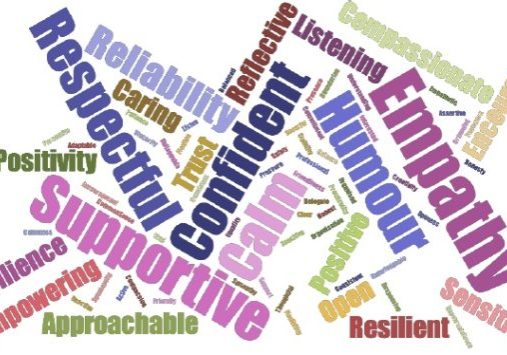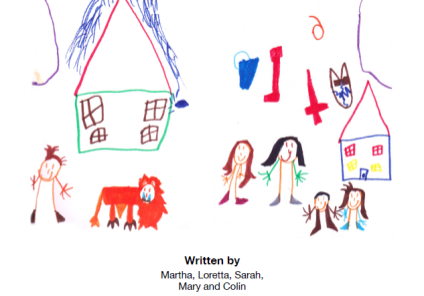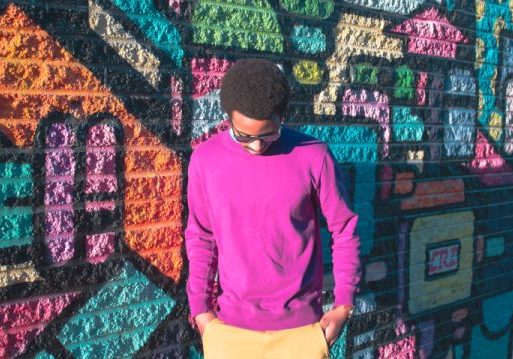This blog gives insights into a novel internship in which an undergraduate student from Quebec joined forces with Boingboing and a PhD student at the University of Brighton. Esme and Viktoria offer some top tips to anyone wanting to do an internship and also give a fascinating account of their partnership.
Words by Esme Longley:
As the summer comes to a close and I adjust to a new academic year, I’ve felt so much gratitude for my opportunity interning with Boingboing, the University of Brighton’s Centre of Resilience for Social Justice (CRSJ) and the Resilience Revolution.
I am a second-year student aged 20 at Quebec’s McGill University, studying for a dual Bachelor of Arts and Science in Sustainability, Science, and Society with a minor in Political Science. With such a broad degree, I was initially concerned that I would not find an opportunity that spoke to both my scientific and sociological interests in climate change research. However, upon returning to the UK for the summer and searching for research that spoke to me, I stumbled upon the Boingboing and CRSJ’s websites and the countless ongoing projects.
Interested, I contacted Professor Angie Hart inquiring whether there were any open opportunities to get involved in research on my particular interest: the intersection between ethnicity and the climate catastrophe. Professor Hart quickly got back to me, putting me in touch with Viktoria Erlacher-Downing, a PhD candidate and lead researcher in that area.
Both Viktoria and Professor Hart were incredibly welcoming and coordinated with Boingboing to forge an internship arrangement concerning Viktoria’s PhD research. The internship broke down into two main tasks: administration and communications. I was not sure what to expect in this novel experience being unfamiliar with the structure of a PhD.
Here are a few tips for getting an internship with organisations you are interested in:
- Know that your curiosity is enough to reach out! It was definitely very intimidating putting myself out there, explaining my interests, and feeling my lack of experience while asking for an opportunity to learn more. However, an internship is a chance to learn about a field while contributing your unique and valuable perspective!
- Use your networks. This is something I regret not doing more, but go through your university and look for opportunities, ask academic advisors and tutors, and reach out to your professors to find outlets you can participate in.
- Be open-minded. Your internship may not correlate to your field perfectly but it is an amazing skill to be flexible and find a way to creatively combine your interests with new opportunities.
- Don’t give up. Last, but not least, you will probably have to shoot your shot many times. I sent about 20-25 emails before I got responses, but it was definitely worth it overall to have some options. No matter what you end up doing this summer, you can find a way to make it interesting and relevant to your life. In addition to my internship, for example, I worked about 30-40 hours a week bartending. Although not directly related to my field, I still learned valuable skills about patience and efficiency.
I would really like to emphasise that this internship was a learning experience for me. Much of this learning was academic: I learned about concepts such as resilience, empowerment and autonomy as part of systemic injustice. I discovered the lack of literature addressing the intersection between climate change, mental health, and social inequity. Some learning was more institutional – I learned about the type of work that goes into a PhD and about networks like Boingboing that exist to promote resilience in a community-based manner. I learned how to communicate research through a community report geared to an audience outside the realm of academia.
Importantly, too, I learned a great deal about hope and resilience from the youth involved in this project. Viktoria’s research dealt with the mental health impacts of climate change on Young People facing Multiple Systemic Disadvantages (YPfMSD). Reading over her research to produce the community report was moving and powerful. I often struggle with the symptoms of hopelessness, despair, and incapacitating anxiety from being bombarded with news of the climate catastrophe that is happening. Knowing that youth felt the same heartbreak about pollution (“at one point we had the cleanest ocean and the cleanest beach and then you go walking round the rest of Blackpool and there is rubbish all over the place” Libs, 15.) yet still found resilience together in climate optimism has changed my approach in my classes this year. Instead of returning from lectures drained, I make space to speak with my peers outside of the classroom to share our feelings and translate them into tangible action. Local movements still feel small, but they don’t feel futile anymore.
I would like to profusely thank a few people for providing me with this intense but important experience. First, a huge thank you to Professor Angie Hart who opened the doors for me to join the Resilience Revolution. I am incredibly grateful for your warmth and support throughout the summer, from introducing me to new mentors to genuinely listening to me, I cannot be more thankful. Second, thank you very much to Viktoria – you have been supportive, challenged me intellectually, and trusted me to work on your project which changed my worldview. Third, thank you to everyone else involved in Viktoria’s PhD study including HeadStart Blackpool’s Resilience Revolution, all project partners and co-researchers, and the participants in the study. I am in awe of your strength and positivity!
To anyone considering interning with Boingboing or the CRSJ, I would absolutely encourage you to try it out and join the Resilience Revolution!
Words by Viktoria Erlacher-Downing:
From the outside, academia and PhDs can be such a mystery and once you’re in it it’s easy to work in isolation from the outside world . So I was really excited when the opportunity came up, through Boingboing and the CRSJ, to link up with an undergraduate student interested in the kind of work I was doing. This collaboration between Esme and I has been beneficial on both parts, I was able to demystify what I do as a PhD student aged 28 and how I got to where I am in the first place. And Esme really helped me see my research through fresh eyes and was a great help in summarising it for the community report. She also brought her design skills to the table and is to thank for how visually engaging the community report turned out to be.
I do wish I had the skills (and confidence!) at her age to reach out to people in social research and ask to shadow academic processes (check out her list of top tips on how to do so above). This would have made my transition into doing a PhD much less anxiety provoking. Going forward, I do hope that more young people are able to link up with PhD students to make this part of higher education more accessible. It’s a great opportunity to get out of our academic comfort zones and look at our projects from a different perspective, with the added bonus of being able to share our research interests with someone outside of our supervisory team.



